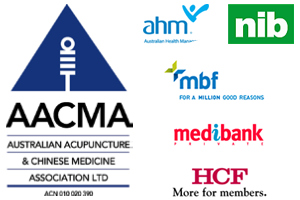Anxiety, like depression, can be a debilitating condition that is little understood by those close to us. We all experience anxiety in life, but for those with anxiety disorders the anxious feelings never go away and may continue to get worse over time. This constant anxiety eventually begins to interfere with work, school, relationships and even our ability to perform basic activities of daily living.
Generalised Anxiety Disorder
Anxiety, or more specifically Generalised Anxiety Disorder (GAD), affects about 18.1% of the adult population and is 60% more likely to impact women than men. Anxiety is pervasive and affects more than mood. Research has demonstrated that anxiety disorders affect the cardiovascular, respiratory and digestive systems, interrupt sleep and cause muscle and body pain.
Symptoms of Anxiety
The symptoms of anxiety can be vague and are often confused with other conditions like depression and fibromyalgia.
Signs of anxiety include:
- Being restless and on edge
- Fatigue for no reason
- Problems concentrating
- Irritability and unexplained feelings of annoyance
- Unexplained muscle tension and pain
- Sleep disturbances that include problems falling and staying asleep.
Massage Therapy Helps Control Anxiety
Massage therapy is excellent in managing anxiety because it has been proven to address two of the most significant symptoms of anxiety: massage therapy reduces sleep disturbances and insomnia, and reduces pain from muscle tension.
Massage Therapy Improves Sleep
Sleep is a vital function. During sleep both the body and mind repair and regenerate. Sleep deprivation wreaks havoc on our mental functions and emotional state, as anyone who has lost a night of sleep well knows! Sleep disturbances have significant adverse effects on the immune system, the nervous system and ability to concentrate as well as our overall energy levels.
Sleep is a critical function and not sleeping results in mood swings, the inability to function and difficulty in the ability to concentrate. The areas in the brain that control emotions, decision-making and social interactions all require sleep to repair and regenerate. When we do not get enough sleep, or do not sleep deep enough for long enough, we begin to lose our ability to think straight and begin to feel anxiety and depression.
Massage therapy has been shown to improve sleep, and therefore reduce the overall symptoms of anxiety. Massage therapy reduces overall stress, and has been proven to improve sleep in children, in cancer patients and in those who suffer from fibromyalgia. In studies, massage therapy has demonstrated to significantly improve the ability to fall asleep and the quality of sleep in those who suffer from a variety of conditions – including anxiety.
By improving sleep, many other symptoms begin to show improvement:
- concentration improves
- fatigue lessens
- pain is reduced
- the emotional state improves (this is critical for those who suffer from anxiety)
Massage Therapy Reduces Pain
Massage therapy has also been proven in reducing pain, and is especially useful in reducing muscle tension and pain.Swedish massage or long gliding strokes, offers greater stress and pain reduction and improved quality and quantity of sleep – while deep tissue massage techniques, including ischemic compression, do more to reduce pain and muscle tension by releasing tension and trigger points. Massage therapy acts to increase circulation, flushing out lactic acid and bringing in fresh oxygen rich blood. Deep tissue techniques may also include friction to break up adhesions and stretching to lengthen muscle fibres and tissue, restoring range of motion.
Study of Massage Therapy in Acute Care Setting
In a study on the use of massage therapy in an acute care setting, qualitative data demonstrated improvements in all areas, including: overall pain levels, emotional well-being, relaxation and the ability to sleep. The study showed significant reduction in pain levels, improved relaxation and sleep, improvement in emotional state, and improved recovery and healing.
Massage therapy has also demonstrated significant benefits in post-exercise recovery and in preventing delayed onset soreness post exercise. These same benefits seem to transfer to those who experience muscle tension and soreness resulting from constant tension brought on by emotional upset, as massage therapy increases muscle relaxation in those suffering from stress, depression and anxiety conditions.
By reducing pain from muscle tension and improving the quality and quantity of sleep, massage therapy can have significant impact on the reduction of signs and symptoms of anxiety. When we achieve better sleep our bodies and minds can repair and regenerate, and when we reduce pain from muscle tension we experience an overall sense of relief, calm and relaxation.



